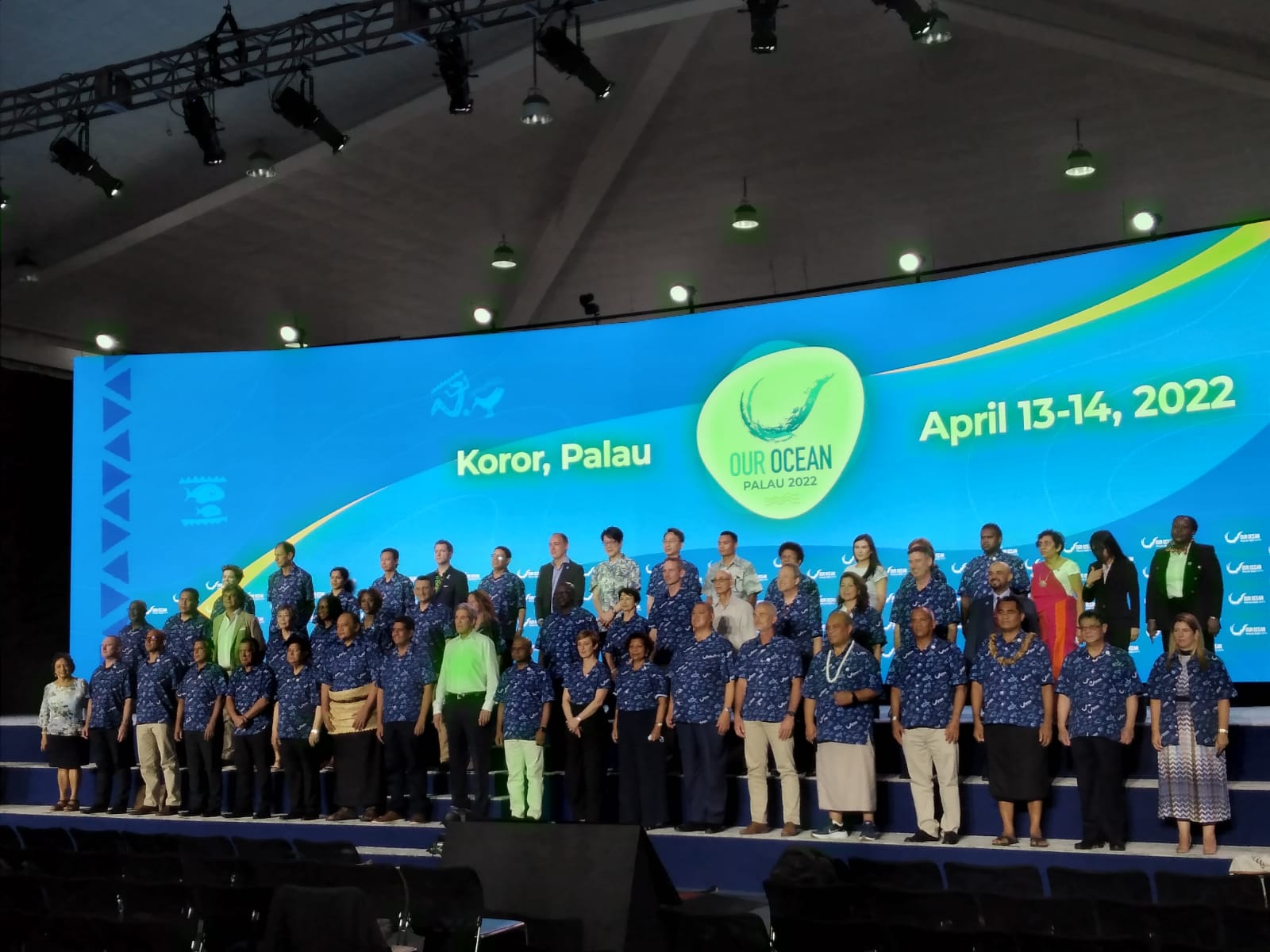
7th Our Ocean Conference Concludes With Look Ahead to Our Ocean Panama 2023
Today, the Panamanian delegation concluded its participation in the 7th Our Ocean Conference in Palau by participating in a closing ceremony that previewed Panama’s role as host of the 8th iteration of the conference in 2023. On behalf of the Panamanian delegation, Panama’s Minister of Environment Milciades Concepción joined President Surangel Whipps Jr. of Palau, U.S. Special Envoy for Climate John Kerry, and Minister of International Development Anne Beathe Tvinnereim of Norway in delivering remarks to conclude the two-day international conference, which brought together representatives from government, business and conservation groups to address the critical issue of ensuring the health of the world’s oceans.
“I appreciate the opportunity given to Panama to be the next host of the Our Ocean Conference,” said Minister Concepción during the closing ceremony. “We are living in a moment of crisis that requires us to work in a synchronized manner with all actors. In each one of these conferences, we must establish achievable and measurable commitments, each more ambitious than the last, to ensure the protection and conservation of our ocean.”
As the country that connects the world’s two largest oceans and which relies on a healthy marine environment to sustain its economic growth, Panama places marine conservation at the center of its domestic and foreign policy agendas. Layered over Panama’s economic endeavors is its commitment to fostering a blue economy through sustainable use of ocean resources, ecological programs to preserve marine habitats, and environmental regulations to reduce plastic waste and marine pollution while fostering eco-tourism and sustainable fishing – all of which have made Panama a leader on this critical issue.
This marine conservation leadership was on full display during an event hosted by Panama on the margins of the Our Ocean Conference focused on the Eastern Tropical Pacific Marine Corridor, or CMAR, a 500,000 square kilometer marine protected area that was expanded last year when Panama, Costa Rica, Ecuador and Colombia combined their marine reserves at COP26. Jose Julio Casas, Director of Coasts and Oceans at Panama’s Ministry of Environment, spoke with Dr. Edgardo Díaz-Ferguson of the Coiba Scientific Station, Special Adviser for the Blue Economy for the United Nations Conference on Trade and Development Dona Bertarelli, ocean policy expert and Mission Blue advisor Maximiliano Bello, and Costa Rica’s Vice Minister of Water and Seas Cynthia Barzurna about the important example the CMAR sets for conservation efforts as one of the largest marine protected areas in the world.
In a separate event hosted by Bloomberg Philanthropies and U.S.-based ocean conservation group Oceana, Panama’s Minister of Agricultural Development Augusto Valderrama highlighted the impact of illegal, unreported, and unregulated (IUU) fishing on marine ecosystems and local communities in and around Panama. In discussion with government officials from the Philippines and the United States, as well as representatives of international NGOs, Minister Valderrama underscored the need for the international community to develop and implement transparency-based solutions to combat IUU fishing, and preserve natural ecosystems and sustain local economies over the long term.
On Day 2 of the Our Ocean Conference, Minister Concepción also announced Panama’s role as a founding member of the 2030 Island-Ocean Connection Challenge, reflecting a national understanding that environmental restoration and conservation efforts must go hand-in-hand. As part of the Challenge, Panama – in partnership with the government of Palau, Island Conservation, Re:wild, and the Scripps Institution of Oceanography at the University of California San Diego – aims to raise $160 million to restore 40 significant island ecosystems by 2030, which will protect an estimated 600 populations of 250 threatened wildlife species and build the resiliency of island communities and ecosystems. The founding partners have raised $50 million toward this effort to date.
The protection of the Eastern Tropical Pacific Marine Corridor and related efforts to combat IUU fishing and restore island ecosystems are representative of Panama’s broader commitment to preserve and restore marine environments. In 2021 Panama successfully reached the global 30×30 goal of conserving 30% of its land and waters by 2030, a full nine years ahead of schedule. This includes the designation of five special marine-coastal resource management zones and 46 marine protected areas. The country has also taken a leadership role in tackling plastic pollution, becoming one of the first nations in Latin America to establish a national action plan on marine litter. This year, Panama’s President Laurentino Cortizo Cohen signed legislation that recognizes the legal rights of nature, which will further support ecosystem restoration efforts in Panama’s waters.
“Climate diplomacy is a core part of Panama’s foreign policy agenda. Through a series of international agreements to protect and restore marine environments, Panama has earned its status as a Blue Leader”, said Panama’s Foreign Minister Erika Mouynes following the conclusion of the Our Ocean Conference. “As Panama looks to follow the inspiring example of Palau as host of the 8th Our Ocean Conference in 2023, we will continue to explore opportunities for partnerships that preserve not only our own marine ecosystems, but those of the world.”
Later this month, Panama will assume the presidency of the Eastern Tropical Pacific Marine Corridor initiative and welcome the participation of foreign ministers in the group’s dialogue for the first time, reflecting Panama’s belief that marine conservation must be a diplomatic and political, as well as environmental, priority.